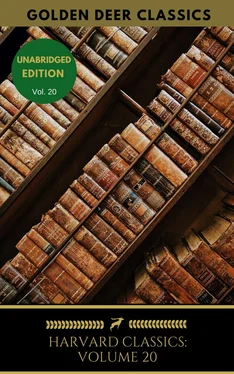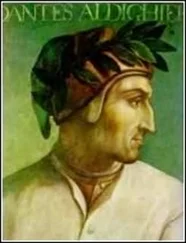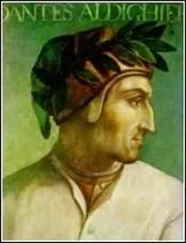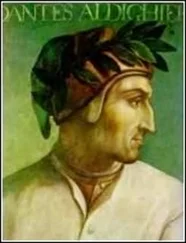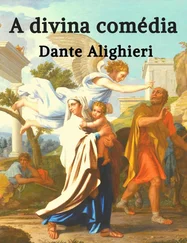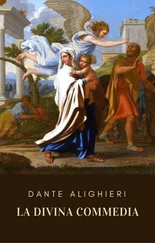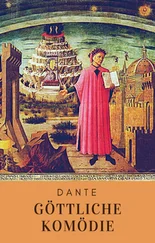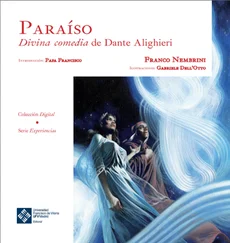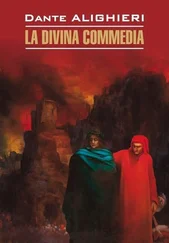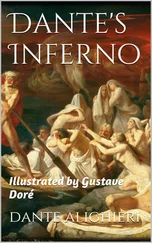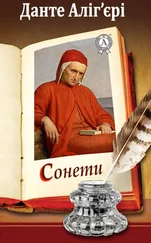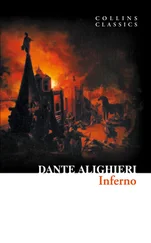Array Dante Alighieri - Harvard Classics Volume 20
Здесь есть возможность читать онлайн «Array Dante Alighieri - Harvard Classics Volume 20» — ознакомительный отрывок электронной книги совершенно бесплатно, а после прочтения отрывка купить полную версию. В некоторых случаях можно слушать аудио, скачать через торрент в формате fb2 и присутствует краткое содержание. Жанр: unrecognised, на английском языке. Описание произведения, (предисловие) а так же отзывы посетителей доступны на портале библиотеки ЛибКат.
- Название:Harvard Classics Volume 20
- Автор:
- Жанр:
- Год:неизвестен
- ISBN:нет данных
- Рейтинг книги:5 / 5. Голосов: 1
-
Избранное:Добавить в избранное
- Отзывы:
-
Ваша оценка:
- 100
- 1
- 2
- 3
- 4
- 5
Harvard Classics Volume 20: краткое содержание, описание и аннотация
Предлагаем к чтению аннотацию, описание, краткое содержание или предисловие (зависит от того, что написал сам автор книги «Harvard Classics Volume 20»). Если вы не нашли необходимую информацию о книге — напишите в комментариях, мы постараемся отыскать её.
1. The Divine Comedy, by Dante Alighieri
Also available:
The Complete Harvard Classics Collection (51 Volumes + The Harvard Classic Shelf Of Fiction)
50 Masterpieces You Have To Read Before You Die (Golden Deer Classics)
Harvard Classics Volume 20 — читать онлайн ознакомительный отрывок
Ниже представлен текст книги, разбитый по страницам. Система сохранения места последней прочитанной страницы, позволяет с удобством читать онлайн бесплатно книгу «Harvard Classics Volume 20», без необходимости каждый раз заново искать на чём Вы остановились. Поставьте закладку, и сможете в любой момент перейти на страницу, на которой закончили чтение.
Интервал:
Закладка:
For so Heaven’s pleasure is, that I should lead
Another through this savage wilderness.”
Forthwith so fell his pride, that he let drop
The instrument of torture at his feet,
And to the rest exclaim’d: “We have no power
To strike him.” Then to me my guide: “O thou!
Who on the bridge among the crags dost sit
Low crouching, safely now to me return.”
I rose, and toward him moved with speed; the fiends
Meantime all forward drew: me terror seized,
Lest they should break the compact they had made.
Thus issuing from Caprona, [147]once I saw
Th’ infantry, dreading lest his covenant
The foe should break; so close he hemm’d them round.
I to my leader’s side adhered, mine eyes
With fixt and motionless observance bent
On their unkindly visage. They their hooks
Protruding, one the other thus bespake:
“Wilt thou I touch him on the hip?” To whom
Was answer’d: “Even so; nor miss thy aim.”
But he, who was in conference with my guide,
Turn’d rapid round; and thus the demon spake:
“Stay, stay thee, Scarmiglione!” Then to us
He added: “Further footing to your step
This rock affords not, shiver’d to the base
Of the sixth arch. But would ye still proceed,
Up by this cavern go: not distant far,
Another rock will yield you passage safe.
Yesterday, [148]later by five hours than now,
Twelve hundred threescore years and six had fill’d
The circuit of their course, since here the way
Was broken. Thitherward I straight despatch
Certain of these my scouts, who shall espy
If any on the surface bask. With them
Go ye: for ye shall find them nothing fell.
Come, Alichino, forth,” with that he cried,
“And Calcabrina, and Cagnozzo thou!
The troop of ten let Barbariccia lead.
With Libicocco, Draghinazzo haste,
Fang’d Ciriatta, Graffiacane fierce,
And Farfarello, and mad Rubicant.
Search ye around the bubbling tar. For these,
In safety lead them, where the other crag
Uninterrupted traverses the dens.”
I then: “O master! what a sight is there.
Ah! without escort, journey we alone,
Which, if thou know the way, I covet not.
Unless thy prudence fail thee, dost not mark
How they do gnarl upon us, and their scowl
Threatens us present tortures?” He replied:
“I charge thee, fear not: let them, as they will,
Gnarl on: ’tis but in token of their spite
Against the souls who mourn in torment steep’d.”
To leftward o’er the pier they turn’d; but each
Had first between his teeth prest close the tongue,
Toward their leader for a signal looking,
Which he with sound obscene triumphant gave.
Canto XXII
Argument.—Virgil and Dante proceed, accompanied by the Demons, and see other sinners of the same description in the same gulf. The device of Ciampolo, one of these, to escape from the Demons, who had laid hold on him.
It hath been heretofore my chance to see
Horsemen with martial order shifting camp,
To onset sallying, or in muster ranged,
Or in retreat sometimes outstretch’d for flight:
Light-armed squadrons and fleet foragers
Scouring thy plains, Arezzo! have I seen,
And clashing tournaments, and titling jousts,
Now with the sound of trumpets, now of bells,
Tabors, or signals made from castled heights;
And with inventions multiform, our own,
Or introduced from foreign land; but ne’er
To such a strange recorder I beheld,
In evolution moving, horse nor foot,
Nor ship, the tack’d by sign from land or star.
With the ten Demons on our way we went;
Ah, fearful company! but in the church
With saints, with gluttons at the tavern’s mess.
Still earnest on the pitch I gazed, to mark
All things whate’er the chasm contain’d, and those
Who burn’d within. As dolphins that, in sign
To mariners, heave high their arched backs,
That thence forewarn’d they may advise to save
Their threaten’d vessel; so, at intervals,
To ease the pain, his back some sinner show’d,
Then hid more nimbly than the lightning-glance.
E’en as the frogs, that of a watery moat
Stand at the brink, with the jaws only out,
Their feet and of the trunk all else conceal’d,
Thus on each part the sinners stood; but soon
As Barbariccia was at hand, so they
Drew back under the wave. I saw, and yet
My heart doth stragger, one, that waited thus,
As it befalls that oft one frog remains,
While the next springs away: and Graffiacan,
Who of the fiends was nearest, grappling seized
His clotted locks, and dragg’d him sprawling up,
That he appear’d to me an otter. Each
Already by their names I knew, so well
When they were chosen I observed, and mark’d
How one the other call’d. “O Rubicant!
See that his hide thou with thy talons flay,”
Shouted together all the cursed crew.
Then I: “Inform thee, Master! if thou may,
What wretched soul is this, on whom their hands
His foes have laid.” My leader to his side
Approach’d, and whence he came inquired; to whom
Was answer’d thus: “Born in Navarre’s domain, [149]
My mother placed me in a lord’s retinue:
For she had borne me to a losel vile,
A spendthrift of his substance and himself.
The good King Thibault [150]after that I served:
To peculating here my thoughts were turn’d,
Whereof I give account in this dire heat.”
Straight Ciriatto, from whose mouth a tusk
Issued on either side, as from a boar,
Ripp’d him with one of these. ’Twixt evil claws
The mouse had fallen: but Barbariccia cried,
Seizing him with both arms: “Stand thou apart
While I do fix him on my prong transpierced.”
Then added, turning to my guide his face,
“Inquire of him, if more thou wish to learn,
Ere he again be rent.” My leader thus:
“Then tell us of the partners in thy guilt;
Knowest thou any sprung of Latin land
Under the tar?” “I parted,” he replied,
“But now from one, who sojourn’d not far thence;
So were I under shelter now with him,
Nor hook nor talon then should scare me more.”
“Too long we suffer,” Libicocco cried;
Then, darting forth a prong, seized on his arm,
And mangled bore away the sinewy part.
Him Draghinazzo by his thighs beneath
Would next have caught; whence angrily their chief,
Turning on all sides round, with threatening brow
Restrain’d them. When their strife a little ceased,
Of him, who yet was gazing on his wound,
My teacher thus without delay inquired:
“Who was the spirit, from whom by evil hap
Parting, as thou hast told, thou camest to shore?”
“It was the friar Gomita,” [151]he rejoin’d,
“He of Gallura, vessel of all guile,
Who had his master’s enemies in hand,
And used them so that they commend him well.
Money he took, and them at large dismiss’d;
So he reports; and in each other charge
Committed to his keeping play’d the part
Of barterer to the height. With him doth herd
The chief of Logodoro, Michel Zanche. [152]
Sardinia is a theme whereof their tongue
Is never weary. Out! alas! behold
That other, how he grins. More would I say,
But tremble lest he mean to maul me sore.”
Their captain then to Farfarello turning,
Who roll’d his moony eyes in act to strike,
Rebuked him thus: “Off, cursed bird! avaunt!”
“If ye desire to see or hear,” he thus
Читать дальшеИнтервал:
Закладка:
Похожие книги на «Harvard Classics Volume 20»
Представляем Вашему вниманию похожие книги на «Harvard Classics Volume 20» списком для выбора. Мы отобрали схожую по названию и смыслу литературу в надежде предоставить читателям больше вариантов отыскать новые, интересные, ещё непрочитанные произведения.
Обсуждение, отзывы о книге «Harvard Classics Volume 20» и просто собственные мнения читателей. Оставьте ваши комментарии, напишите, что Вы думаете о произведении, его смысле или главных героях. Укажите что конкретно понравилось, а что нет, и почему Вы так считаете.
